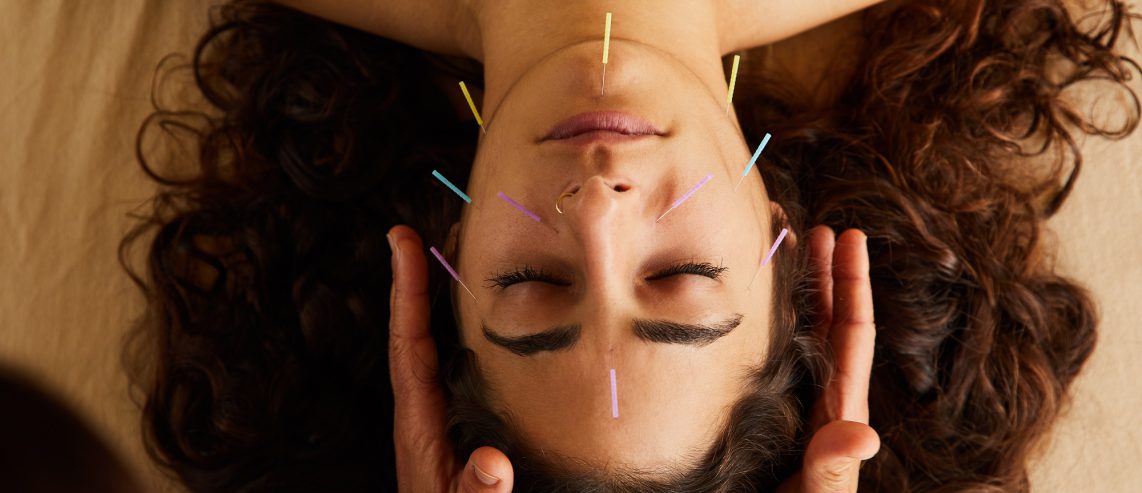Infertility can cause stress and frustration for many people who want to start a family. Around 11% of women and 9% of men in the U.S. struggle with infertility. That’s according to the National Institute of Child Health and Human Development (NICHHD).
Many people turn to fertility acupuncture in hopes of improving their chances of getting pregnant. Here’s what you should know if you’re considering fertility acupuncture.
What Is Acupuncture?
Acupuncture is a traditional Chinese medicine dating back more than 2,000 years. The National Institutes of Health classifies it as a complementary and alternative medicine.
So far, research has shown that acupuncture can treat:
- Nausea from pregnancy, cancer drugs, or after surgery.
- Several types of acute or chronic pain.
Whether and how acupuncture can work to boost fertility or treat infertility is less certain.
Never Miss a Beat!
Subscribe to Our HealthBeat Newsletter!
Thank you for subscribing!
You can now select the specific newsletters you'd like to receive.
You are already subscribed.
Subscribe to more newsletters in our email preference center.
Sorry, an error occurred. Please try again later.
Get Healthy Tips Sent to Your Phone!
How Does Acupuncture for Fertility Work?
Acupuncture is safe and has few side effects (if any). So, some men and women have done it in hopes of improving their fertility. But so far, there’s not much high-quality evidence that acupuncture impacts fertility issues.
Some studies show that “sham” acupuncture — fake needles used in the control group of clinical trials — can also have therapeutic effects. This is a medical phenomenon called the placebo effect. How the placebo effect works is also unclear.
Researchers theorize placebos may increase feel-good brain chemicals, like endorphins and dopamine. They may also stimulate brain activity in areas that control mood.
Does Acupuncture Work to Treat Fertility?
Here’s what recent research says about acupuncture for fertility:
- A 2020 review studied whether acupuncture improves sperm quality in men who had low sperm numbers and low sperm motility. It could not draw firm conclusions on efficacy.
- A 2021 review studied whether acupuncture improved the success of in vitro fertilization as a treatment for infertility. It found no difference between acupuncture and sham acupuncture.
There are fertility-promoting acupuncture treatments for both female infertility and male infertility.
For male infertility
To treat male infertility, acupuncture may work as an added therapy to conventional medications. However, research doesn’t show that acupuncture works on its own to treat male infertility. That’s according to a literature review published in Frontiers in Endocrinology.
Acupuncture is “not recommended for improving the sperm quality or count of healthy individuals.” But it “may enhance the effect of conventional medications.” That’s from a 2021 systematic review and meta-analysis published in Medicine.
For female infertility
Researchers have studied acupuncture to improve in vitro fertilization. But studies have also tested acupuncture as a treatment for polycystic ovary syndrome (PCOS).
Women with PCOS often have fertility problems. Doctors have studied acupuncture to improve fertility and control PCOS symptoms.
Between 5% and 15% of females worldwide have PCOS, according to StatPearls. In the U.S., PCOS affects about 5 million reproductive-age females.
Until recently, most studies of acupuncture and PCOS were of low quality. They were not randomized controlled clinical trials, which are the best way to tell if a treatment actually works.
So far, whether fertility acupuncture improves the chances of getting pregnant for women with PCOS is unclear. A recent Cochrane Database Systematic Review found that acupuncture may improve the number of days between periods in women with PCOS. But whether it improves ovulation rates is unclear.
Types of Fertility Acupuncture
Fertility acupuncture treatments include both body acupuncture and ear acupuncture. Body acupuncture uses thin, sterile, stainless-steel needles at various points on your body. Ear acupuncture (also known as aural acupuncture) involves stimulating points on the outer part of your ears.
With both types of fertility acupuncture, the practitioner may stimulate the needles. They may do this manually, apply heat, or use tiny electrical impulses. When they use electrical impulses, it’s electroacupuncture or electrostimulation.
What Happens During Acupuncture for Fertility?
The practitioner will review your medical history before your first acupuncture session. You don’t need to do anything special to prepare.
Depending on the type of treatment you get, here’s what you can expect from acupuncture for fertility:
- You’ll wear your own clothing or a gown or sheet to cover you.
- You’ll lie down on a padded table.
- The acupuncturist may turn on gentle music or nature sounds to help you relax.
- For body acupuncture, the practitioner will gently tap or insert about five to 20 needles into specific points on your body.
- For ear acupuncture, the practitioner will insert a needle on the outside of your ear.
- You may feel a slight pinching or tugging sensation.
- As you relax, the acupuncturist may stimulate the needles manually and apply heat or small electrical pulses to them.
- You’ll continue to lie on the table or chair and relax for about 20 minutes before they remove the needles.
Is Acupuncture Safe?
The National Center for Complementary and Integrative Medicine considers acupuncture safe for most people.
Common side effects of fertility acupuncture
Adverse events reported with acupuncture for female and male infertility include:
- Bruising and bleeding at the needle site.
- Dizziness.
- Fainting.
- Nausea.
- Needling discomfort.
Complications from fertility acupuncture
Acupuncture is generally safe when performed by an experienced practitioner. However, complications can occur when the practitioner uses non-sterile needles or performs it improperly.
The U.S. Food and Drug Administration regulates acupuncture needles as medical devices. Acupuncturists must ensure all needles are sterile and for single use only.
Though rare, serious complications of poorly done acupuncture include:
- Infections.
- Injury to the central nervous system.
- Punctured organs.
Talking to Your Doctor About Infertility
To learn more about fertility acupuncture, ask your doctor for a referral. They can suggest an acupuncture practitioner who has experience working with fertility patients.
If you are struggling with infertility, there’s hope and help. Conventional medical therapy can treat up to 90% of cases of infertility. These treatments can include medicines, surgery, or other procedures. That’s according to the NICHHD.
Sources
National Institute of Child Health and Human Development. How common is infertility? Link
National Center for Complementary and Integrative Health. Complementary, Alternative, or Integrative Health: What’s In a Name? Link
Frontiers in Endocrinology. The efficacy and mechanism of acupuncture in the treatment of male infertility: A literature review. Link
Medicine. Efficacy and safety of acupuncture therapy combined with conventional pharmacotherapy in the treatment of systemic lupus erythematosus: A systematic review and meta-analysis. Link
StatPearls. Polycystic Ovarian Disease. Link
Cochrane. Acupuncture for polycystic ovarian syndrome. Link
About UPMC Magee-Womens
Built upon our flagship, UPMC Magee-Womens Hospital in Pittsburgh, and its century-plus history of providing high-quality medical care for people at all stages of life, UPMC Magee-Womens is nationally renowned for its outstanding care for women and their families.
Our Magee-Womens network – from women’s imaging centers and specialty care to outpatient and hospital-based services – provides care throughout Pennsylvania, so the help you need is always close to home. More than 25,000 babies are born at our network hospitals each year, with 10,000 of those babies born at UPMC Magee in Pittsburgh, home to one of the largest NICUs in the country. The Department of Health and Human Services recognizes Magee in Pittsburgh as a National Center of Excellence in Women’s Health; U.S. News & World Report ranks Magee nationally in gynecology. The Magee-Womens Research Institute was the first and is the largest research institute in the U.S. devoted exclusively to women’s health and reproductive biology, with locations in Pittsburgh and Erie.

